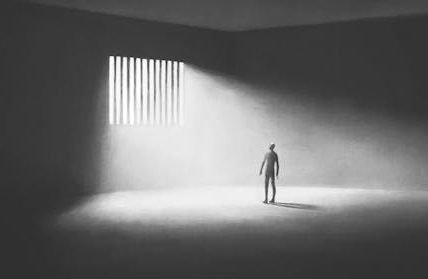Maduro consolidates hold on power as Venezuela’s opposition boycotts elections
Venezuela’s ruling party romped to victory in regional and legislative elections on May 25, winning over 82% of votes cast for the national assembly. The government-controlled national electoral council said candidates for the United Socialist Party of Venezuela (PSUV) won the race for governor in 23 out of the country’s 24 states.
These elections saw a turnout possibly as low as 25% amid a partial opposition boycott. They were the first held since July 2024, when Nicolás Maduro secured a third consecutive term as Venezuela’s president in a vote that was condemned internationally as fraudulent.
One thing that stood out in that 2024 election was the ability of the opposition to mount a credible challenge. Their unified backing of Edmundo González as the presidential candidate, and the systematic gathering of evidence of electoral fraud from polling stations, reflected organisational strength and a coherent strategy.
However, that unity has since eroded. Protests against the 2024 result were met with a harsh government crackdown which included killings and mass detentions. Subsequently, Venezuela’s opposition became deeply divided over whether to participate in the most recent elections.
Veteran opposition leader María Corina Machado, who was barred from running for the presidency and has been in hiding since July, called on her supporters to boycott them. She said that participating would only serve to legitimise Maduro’s electoral fraud.
In contrast, a faction led by two-time presidential candidate Henrique Capriles viewed participation as an opportunity to reclaim political space. Capriles framed electoral participation as a form of protest, arguing that abstention only serves to strengthen Maduro.
Capriles claimed that victory in the 2015 parliamentary elections, which saw opposition parties win two-thirds of the seats in the national assembly, had been made possible by unity – whereas the decision by most of the opposition not to participate in the 2018 presidential election had effectively handed Maduro power.
In the May 2025 elections, Capriles and his supporters actively campaigned to encourage voter turnout – while the Machado camp accused those participating of cooperating with the Maduro regime. The debate was marked by accusations of betrayal and a lack of dialogue.
Learning from failures
Venezuela’s opposition parties have boycotted elections on several occasions over the past 25 years, as the government has tightened its authoritarian grip. But the decision has often had damaging consequences.
The most consequential boycott was in 2005, when a broad coalition of opposition parties withdrew from elections to the national assembly, citing concerns about voting irregularities and media bias. The move backfired.
The government, then led by Maduro’s PSUV predecessor Hugo Chávez, did not face international backlash. It won every seat and gained a supermajority that enabled constitutional changes, including expanded executive powers. The opposition lost its institutional foothold to challenge legislation.
The boycott also deepened internal rifts within Venezuela’s opposition. It entrenched the divide between moderates who favoured political engagement and hardliners who were sceptical of participation. These divisions have persisted to this day.
Opposition movements elsewhere have boycotted elections too, and the consequences have been similar. In 2014, the main opposition party in Bangladesh abstained from general elections in an attempt to delegitimise the ruling Awami League’s hold on power and prompt an international response.
In fact, this handed the Awami League near-total control of parliament. With no sustained international pressure, it contributed to the country’s authoritarian consolidation.
Such cases demonstrate that electoral boycotts pose a dilemma for opposition movements. By refusing to participate, they may unintentionally strengthen authoritarian rule by ceding space to incumbents and weakening their own unity.
Research shows that an electoral boycott is likely to be most effective when three conditions align: the ruling regime is vulnerable, the opposition is united, and the international context is favourable. These conditions have consistently been absent in Venezuela.
Its slide towards authoritarianism has been underpinned by the stability of the Maduro regime since 2013. His government has been able to rely on sustained military support and has used repression strategically to tighten its grip on power.
A lack of unity within the opposition has also worked to the regime’s advantage. In their work on Venezuela’s authoritarian trajectory, researchers Maryhen Jiménez and Antulio Rosales demonstrate that partial electoral boycotts have repeatedly failed to produce meaningful change. This is, in their view, due to the absence of a coordinated opposition strategy.
An uncoordinated strategy also risks fostering a sense of “defeatism” among regime critics. This can hamper people’s willingness to take collective action in the future.
Participation in authoritarian elections, even though they are not fair, can still expose underlying vulnerabilities within a ruling regime. Opposition mobilisation ahead of Venezuela’s 2024 election placed the Maduro government under significant pressure. It responded with electoral manipulation.
Evidence of voter fraud provoked international condemnation, including from Brazil and Colombia. These two countries had previously been more cautious in their criticism of the Maduro government.
This further isolated Maduro on the international stage. But condemnation was not accompanied by a sustained or coordinated international strategy to support mediation or political transition in Venezuela.
The road ahead
Whether the opposition can regain coherence and unity remains to be seen. But even if it can, authoritarianism in Venezuela appears firmly entrenched.
The national electoral council’s refusal to release vote tallies following the 2024 election, alongside an intensified crackdown on dissent, reflects a deepening consolidation of power. It is also evidence of Maduro’s declining concern with maintaining even a facade of democratic legitimacy.
In the absence of internal cohesion within Venezuela’s opposition, this authoritarian consolidation is likely to deepen. This will leave even fewer institutional footholds from which the opposition can mount a credible democratic challenge.
Begum Zorlu receives funding for her ESRC-funded South and East Network for Social Sciences Fellowship.



